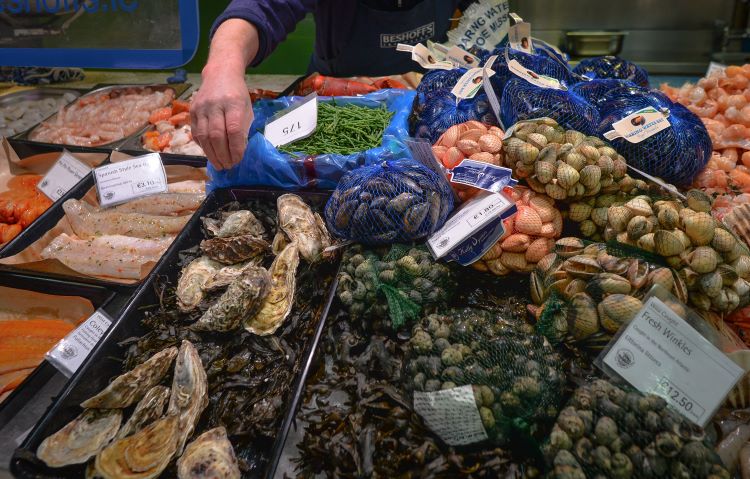EU Ban On Live Shellfish From The UK Is "Legally Wrong" And "Unjustified", George Eustice Says
4 min read
Environment Secretary George Eustice has accused the European Union of changing its position on post Brexit-rules for exports like mussels and cockles with its ban on live shellfish from the UK.
PoliticsHome revealed on Monday that the European Commission last month told the British shellfish industry that unpurified oysters, mussels, clams, cockles and scallops caught in most UK waters were banned from the EU indefinitely, which Eustice claims is "legally wrong".
However, this was contrary to advice given to the industry by the Department for Environment, Food and Rural Affairs (DEFRA). The government department had been telling UK shellfish businesses that the EU ban would only last until April 21 and did not affect farmed shellfish.
Rob Benson, director of Cumbria-based seafood company Kingfisher Seafoods, told PoliticsHome that the news had "all but destroyed any hope we had of the future".
Like many other seafood exporters in the UK, Benson's company is reliant on EU trade.
Most of the 17-year-old company's cockle and mussel exports go to Spain and France, where they are purified and then sent to supermarkets, restaurants and bars.
Benson blamed the government for failing to communicate the consequences of Brexit to the industry, telling PoliticsHome: “This is not a teething issue, this is the government removing all our teeth and leaving us unable to eat.
"This is not new EU policy. This has always been there. This is the government not doing their job to safeguard the industry”.
However, appearing before the House of Lords EU Environment Sub-Committee on Wednesday morning, Eustice said it was fault of the EU, which he accused of changing its position on shellfish.
“It’s fair to say that on that, the EU has changed its position," he told peers.
"And it only changed its position towards the latter part of last week".
Eustice claimed that Brussels initially told the government that it would accept live shellfish exports from the UK once it had created a certificate to faciliate this trade. The minister said the EU then decided it would allow wild-caught shellfish to enter its markets, before changing its position again "late last week" to a total ban on all shellfish caught in class B waters — most UK waters.
“We think this is a misinterpretation of their own laws and is unjustified and our animal and plant health team is working up a technical dossier to continue the dialogue so we can get that particular issue unblocked," he told the committee. Opposition MPs have called on DEFRA to explain why it had given shellfish businesses incorrect guidance.
Opposition MPs have called on DEFRA to explain why it had given shellfish businesses incorrect guidance.
Alistair Carmichael, the Liberal Democrats' Home Affairs spokesperson, on Monday wrote to Fisheries Minister Victoria Prentis asking for "clarification on your part as to how businesses were so severely misled and why it was left to the European Commission to inform our seafood industry of the reality of the situation".
PoliticsHome has seen an email sent by Prentis in November, just weeks before the end of the Brexit transition period, which said that this trade would be able to restart with “the introduction of a relevant certificate," which Brussels is due to introduce on April 21.
Carmichael said: "As you will no doubt be aware, an indefinite ban on live shellfish exports to the EU will have a catastrophic impact on seafood producers across the UK, including high quality scallop catchers in my constituency.
"Given the already-significant disruption and long-term concerns the industry has due to the Government’s new trade deal with the EU, many companies affected risk closing operations entirely".
Representatives of the shellfish industry met with DEFRA officials on Tuesday to discuss the ban amid warnings that it will put exporters in areas like Devon and Morceambe Bay of business.
Benson from Kingfisher Seafoods told PoliticsHome that during the working group meeting with DEFRA attended by his co-Director, Dr Omar Namor, the issue "was barely given 15 minutes before it was moved on".
One DEFRA official told the industry representatives that there were two ports in France that were willing to accept some unpurified shellfish, Benson said, but that trying to use them "would have to be at the exporters risk".
Benson told PoliticsHome: "This should have been dealt by the government before the deadline. It seems that our industry is so insignificant that despite all this media attention, we have had no response from the government.
"Boris, please tell DEFRA we are shellfish exporters, not smugglers!”
